Source:
Grappi, S., Pauwels, V., Pedeliento, G. and Zarantonello, L. (2024), "How nostalgia in advertising increases brand love: a cross-country study", Journal of Product & Brand Management, Vol. 33 No. 7, pp. 869-887. https://doi.org/10.1108/JPBM-12-2023-4857
In today's fast-paced digital world, marketers are constantly seeking innovative ways to connect with consumers on a deeper level. One strategy that has gained significant traction in recent years is nostalgic advertising. But does tugging at consumers' heartstrings with memories of the past really lead to stronger brand relationships? And does this strategy work equally well across different cultures? A recent study published in the Journal of Product & Brand Management sheds light on these questions, revealing fascinating insights into the power of nostalgia in building brand love.
The Resurgence of Nostalgia in Advertising
Nostalgia in advertising isn't a new concept, but it's experiencing a significant resurgence. From Super Bowl commercials to social media campaigns, brands like Disney, Gucci, Netflix, and Coca-Cola are all tapping into the power of the past to connect with consumers. This trend has become so prominent that Advertising Week even highlighted it as one to watch.
But why the sudden surge in nostalgic advertising? Researchers suggest that people tend to seek comfort in nostalgia, especially during challenging times. The recent global pandemic, for instance, has triggered an increase in emotionally charged cues in advertising, including nostalgia. By evoking fond memories of the past, brands can provide consumers with a sense of security and optimism about the future.
Personal vs. Historical Nostalgia
Not all nostalgic advertising is created equal. The study distinguishes between two types of nostalgia in advertising:
Personal Nostalgia: This type of advertising leverages an individual's actual past experiences.
Historical Nostalgia: This approach is associated with events that the individual did not directly experience but are part of a collective past.
Both types of nostalgia imply that consumers will view the past, whether individually or collectively, as superior to the present. Advertisers can evoke these feelings using various elements such as music, jingles, and visual images.
The Link Between Nostalgia and Brand Love
The study's primary aim was to investigate whether nostalgic advertising can foster brand love - an intense emotional attachment that consumers develop for a particular brand. Brand love goes beyond simple preference or loyalty; it's characterized by passion, positive emotional connection, and even a sense of anticipated separation distress if the brand were to become unavailable.
The researchers conducted a pre-test and post-test quasi-experimental study with representative samples from both a developed country (the UK) and a developing country (India). Participants were randomly exposed to ads evoking either personal nostalgia, historical nostalgia, or non-nostalgic content.
Key Findings
Nostalgia Increases Brand Love: The results indicate that the use of nostalgia in advertising increases brand love in both developed and developing countries.
Cultural Differences Matter: The effectiveness of each type of nostalgia varies depending on the country:
In the UK (developed country), personal nostalgia increases brand love more than historical nostalgia.
In India (developing country), historical nostalgia was found to be more significantly related to brand love than personal nostalgia.
Cultural Context is Key: The researchers suggest that these differences might be related to cultural nuances. Developed countries like the UK tend to be more individualistic, placing greater emphasis on personal experiences. In contrast, developing countries like India often have more collectivist cultures, where shared history and heritage play a more significant role.
Implications for Marketers
These findings have significant implications for marketers, especially those operating in global markets:
Consider Nostalgic Advertising: Marketers should consider using nostalgic advertising as a tool to build long-term brand value and foster brand love.
Tailor Your Approach: The type of nostalgia used should be tailored based on the target country's level of development and cultural context.
Focus on Personal Nostalgia in Developed Countries: For markets like the UK, emphasize personal nostalgia in advertising campaigns.
Emphasize Historical Nostalgia in Developing Countries: In markets like India, focus more on historical nostalgia and shared cultural experiences.
Be Culturally Sensitive: When crafting global campaigns, be mindful of cultural differences and adapt your nostalgic messaging accordingly.
Nostalgia can be a powerful tool in a marketer's arsenal, but it needs to be wielded carefully and with cultural sensitivity. By understanding the nuances of how different types of nostalgia resonate in various markets, brands can create more effective, emotionally resonant campaigns that foster deep, lasting connections with consumers.
As we navigate an increasingly global marketplace, the ability to tailor nostalgic messaging to different cultural contexts may well be the key to building brand love across borders. So, the next time you're crafting a campaign, remember: the past might just be your ticket to your brand's future success.

Link to Quizlet: https://quizlet.com/study-guides/nostalgia-in-advertising-building-brand-love-across-cultures-1b0fa780-1660-4be8-a0ae-5d3d0608d28c?i=3i62em&x=13qt


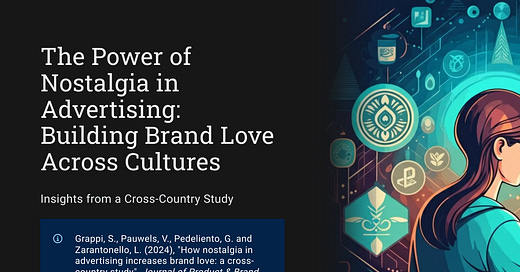





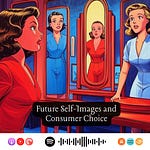
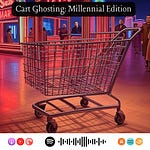
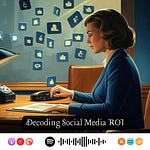
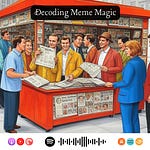
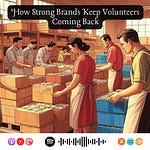
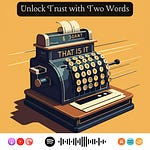
Share this post